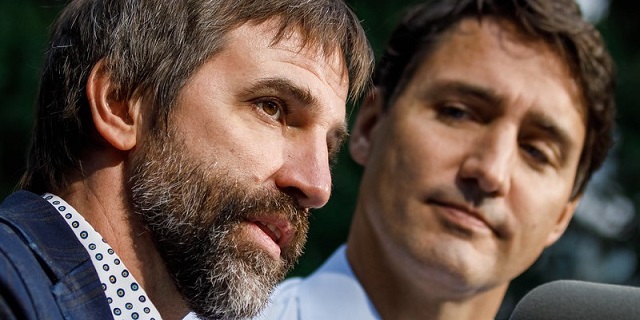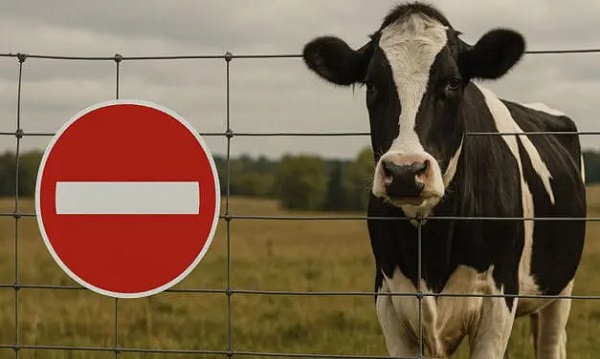National
Trudeau gov’t seeks to delay election by one week, ensuring MPs pass pension threshold

From LifeSiteNews
If the next federal election is delayed from October 20, 2025, to October 27, as the Trudeau government desires, many Liberal and NDP MPs who were elected on October 21, 2019 will just narrowly qualify for a lifetime pension by passing the six-year threshold.
The Liberal government is attempting to delay the federal election in what many see as an attempt to secure pensions for MPs who are projected to lose their seats.
According to election amendments proposed March 20, Prime Minister Justin Trudeau is planning to move the 2025 federal election to a week later than it is currently scheduled, ensuring that a number of Liberal and New Democratic Party (NDP) MPs who are unlikely to be re-elected would receive their pensions by passing the six-year threshold.
“Should a fixed date election be held in 2025, it would be held on Monday October 20th,” the amendment reads.
“However, many communities in Canada will be celebrating Diwali at this time,” it argues. “Therefore, a one-time change to the date is proposed so that the potential election would not conflict with Diwali. Instead, the election would be held the following Monday.”
The federal election is scheduled to take place on October 20, 2025, according to Canada’s Elections Act, which states a general election must be held “on the third Monday of October in the fourth calendar year following polling day for the last general election.”
If the election is held on October 20, many Liberal and NDP MPs who were elected on October 21, 2019 will just narrowly miss the six-year threshold to qualify for a lifetime parliamentary pension.
The proposed amendment would move the federal election to October 27, 2025, allowing the MPs to receive their pensions. Those who would benefit from the delay include Liberal Environment Minister Steven Guilbeault and Treasury Board President Anita Anand.
The one-week delay could cost Canadian taxpayers millions to cover the extra pensions.
In 2021, the Canadian Taxpayers Federation calculated that Liberal MP Adam Vaughan would receive $1.3 million in pension benefits if he reached Canadian life expectancy through the pension plan. Similarly, Conservative MP David Yurdiga was eligible for $1.5 million of lifetime benefits after serving in the House of Commons for seven years.
Notably, the delay would only be of benefit to the Trudeau government if they believe they will lose the next election. Indeed, if Trudeau thought he could win the upcoming election, there would be little reason to delay to ensure his MPs would be given pensions.
The amendments come after months of polling in favour of the Conservative Party under the leadership of Pierre Poilievre.
A recent poll found that 70 percent of Canadians believe country is “broken” as Trudeau focuses on less important issues. Similarly, in January, most Canadians reported that they’re worse off financially since Trudeau took office.
Additionally, a January poll showed that 46 percent of Canadians expressed a desire for the federal election to take place sooner rather than the latest mandated date in the fall of 2025.
Recent polls show that the scandal-plagued government has sent the Liberals into a nosedive with no end in sight. Per a recent LifeSiteNews report, according to polls, were a Canadian federal election held today, Conservatives under Poilievre would win a majority in the House of Commons over Trudeau’s Liberals.
Business
The CBC is a government-funded giant no one watches

This article supplied by Troy Media.
 By Kris Sims
By Kris Sims
The CBC is draining taxpayer money while Canadians tune out. It’s time to stop funding a media giant that’s become a political pawn
The CBC is a taxpayer-funded failure, and it’s time to pull the plug. Yet during the election campaign, Prime Minister Mark Carney pledged to pump another $150 million into the broadcaster, even as the CBC was covering his campaign. That’s a blatant conflict of interest, and it underlines why government-funded journalism must end.
The CBC even reported on that announcement, running a headline calling itself “underfunded.” Think about that. Imagine being a CBC employee asking Carney questions at a campaign news conference, while knowing that if he wins, your employer gets a bigger cheque. Meanwhile, Conservative Leader Pierre Poilievre has pledged to defund the CBC. The broadcaster is literally covering a story that determines its future funding—and pretending there’s no conflict.
This kind of entanglement isn’t journalism. It’s political theatre. When reporters’ paycheques depend on who wins the election, public trust is shattered.
And the rot goes even deeper. In the Throne Speech, the Carney government vowed to “protect the institutions that bring these cultures and this identity to the world, like CBC/RadioCanada.” Before the election, a federal report recommended nearly doubling the CBC’s annual funding. Former heritage minister Pascale St-Onge said Canada should match the G7 average of $62 per person per year—a move that would balloon the CBC’s budget to $2.5 billion annually. That would nearly double the CBC’s current public funding, which already exceeds $1.2 billion per year.
To put that in perspective, $2.5 billion could cover the annual grocery bill for more than 150,000 Canadian families. But Ottawa wants to shovel more cash at an organization most Canadians don’t even watch.
St-Onge also proposed expanding the CBC’s mandate to “fight disinformation,” suggesting it should play a formal role in “helping the Canadian population understand fact-based information.” The federal government says this is about countering false or misleading information online—so-called “disinformation.” But the Carney platform took it further, pledging to “fully equip” the CBC to combat disinformation so Canadians “have a news source
they know they can trust.”
That raises troubling questions. Will the CBC become an official state fact-checker? Who decides what qualifies as “disinformation”? This isn’t about journalism anymore—it’s about control.
Meanwhile, accountability is nonexistent. Despite years of public backlash over lavish executive compensation, the CBC hasn’t cleaned up its act. Former CEO Catherine Tait earned nearly half a million dollars annually. Her successor, Marie Philippe Bouchard, will rake in up to $562,700. Bonuses were scrapped after criticism—but base salaries were quietly hiked instead. Canadians struggling with inflation and rising costs are footing the bill for bloated executive pay at a broadcaster few of them even watch.
The CBC’s flagship English-language prime-time news show draws just 1.8 per cent of available viewers. That means more than 98 per cent of TV-viewing Canadians are tuning out. The public isn’t buying what the CBC is selling—but they’re being forced to pay for it anyway.
Government-funded journalism is a conflict of interest by design. The CBC is expensive, unpopular, and unaccountable. It doesn’t need more money. It needs to stand on its own—or not at all.
Kris Sims is the Alberta Director for the Canadian Taxpayers Federation
Troy Media empowers Canadian community news outlets by providing independent, insightful analysis and commentary. Our mission is to support local media in helping Canadians stay informed and engaged by delivering reliable content that strengthens community connections and deepens understanding across the country.
Business
Carney praises Trump’s world ‘leadership’ at G7 meeting in Canada

From LifeSiteNews
Canada’s prime minister said it was a ‘great honor’ to host the U.S. president and praised him for saying Canada wants to work with the U.S. ‘hand-in-hand.’
During the second day of the G7 leaders meeting in the Kananaskis area in Alberta, Canadian Prime Minister Mark Carney praised U.S. President Donald Trump’s world “leadership” despite saying many negative things about him during his election campaign.
While speaking to reporters Monday, Trump hinted that a new trade deal between Canada and the United States was potentially only “weeks” away. This came after a private meeting with Carney before the official G7 talks commenced.
“We’ve developed a very good relationship. And we’re going to be talking about trade and many other things,” Trump told reporters.
Carney was less vocal, however. He used the opportunity to tell reporters he was happy Trump came to his country for the G7 meeting, saying it was a “great honor” to host him.
“This marks the 50th birthday of the G7, and the G7 is nothing without U.S. leadership,” Carney told reporters.
He then spoke about Trump’s “personal leadership” on world issues and praised him for saying Canada wants to work with the U.S. “hand-in-hand.”
Carney ran his election campaign by claiming the Conservative Party would bow to Trump’s demands despite the fact that the party never said such things.
During his federal election campaign, Carney repeatedly took issue with Trump and the U.S. that turned into an anti-American Canadian legacy media frenzy.
However, the reality is, after Carney won the April 28 federal election, Trump praised him, saying, “Canada chose a very talented person.”
Many political pundits have said that Carney owes his win to Trump, as the U.S. president suggested on multiple occasions that he would rather work with Carney than conservative leader Pierre Poilievre.
Trump has routinely suggested that Canada become an American state in recent months, often making such statements while talking about or implementing trade tariffs on Canadian goods.
As for Carney, he has said his government plans to launch a “new economy” in Canada that will involve “deepening” ties to the world.
-

 Health1 day ago
Health1 day agoLast day and last chance to win this dream home! Support the 2025 Red Deer Hospital Lottery before midnight!
-

 Aristotle Foundation1 day ago
Aristotle Foundation1 day agoThe Canadian Medical Association’s inexplicable stance on pediatric gender medicine
-

 conflict2 days ago
conflict2 days ago“Evacuate”: Netanyahu Warns Tehran as Israel Expands Strikes on Iran’s Military Command
-

 Energy2 days ago
Energy2 days agoCould the G7 Summit in Alberta be a historic moment for Canadian energy?
-

 Bruce Dowbiggin2 days ago
Bruce Dowbiggin2 days agoWOKE NBA Stars Seems Natural For CDN Advertisers. Why Won’t They Bite?
-

 Crime2 days ago
Crime2 days agoMinnesota shooter arrested after 48-hour manhunt
-

 Alberta1 day ago
Alberta1 day agoAlberta announces citizens will have to pay for their COVID shots
-

 Uncategorized1 day ago
Uncategorized1 day agoKananaskis G7 meeting the right setting for U.S. and Canada to reassert energy ties





